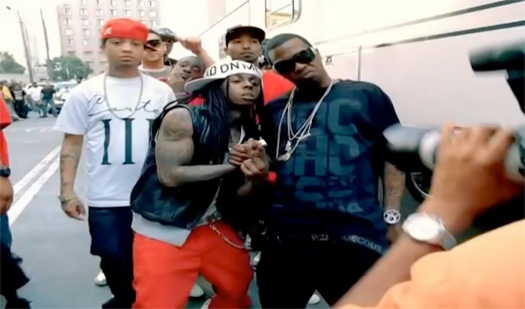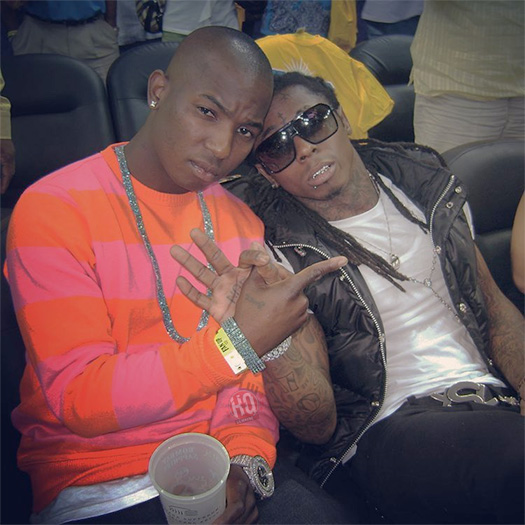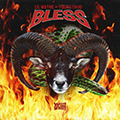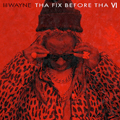
Lil Wayne‘s “A Milli” single off his Tha Carter III album, which was produced by Bangladesh, officially turned 10-years-old on February 13th.
For it’s 10-year anniversary, the producer chatted to Complex all about the song, such as creating the beat, how it ended up in Tunechi‘s hands, the sample, his reaction to first hearing what Tune did over the instrumental (he wasn’t feeling it at first), the legacy of it, his thoughts on everyone freestyling over the beat, Cory Gunz being on the original version of the track, and more.
Hit the jump to read everything what Bangladesh said about Weezy‘s “A Milli” record. It seems like only yesterday when the original version of “A Milli” leaked!
What was it like in that moment, knowing that you were making a beat for peak Wayne? People still look up to him as the man, but 2008 Wayne?
I didn’t know I was making a beat for Wayne. I was just making a beat. I don’t really approach my beats where I focus in on the artist. I just make my beats, you know what I’m saying? I just produce. It’s my sound. It can fit an R&B singer, a pop act, or a rapper. That’s the beauty of having a style: as long as you make a great beat, it can really fit anybody. I was just making a beat. Once I made it, I heard Wayne on it.How did it end up in his hands?
After I made the beat, I heard Wayne on it and I sent it to somebody that I know that is basically in his crew, a part of Young Money. Shanell, I went to high school with her, I was producing Shanell. So it was just a layup, you know what I’m saying? She was working with him and I gave her some beats for Wayne and he picked “A Milli” out of the beats I gave him.I got you. To talk about the beat itself—anybody with Google could find out where you got the sample for “A Milli”—but how did you come across that, and how did you know that that’s what you wanted to do with that little piece of audio?
Honestly, I just heard it. I just looped it. It wasn’t really no—we could break down the science after somebody does something amazing but it really just… there wasn’t really nothing to it. It’s an everyday process. This is what makes you a great producer, the stuff that you hear as individuals. That “A Milli” just caught my ear and I just looped it. It’s easy after that. Once you got a little loop going, the rest kind of falls into place. The drums was just really what it told me to do. I ain’t off coming up with something genius or nothing. It just felt like that’s what it should do. After it was done, then you realize, “Wow, that’s new. Wow.”It was just a regular day, just working. That’s really how everything comes up. I never have just went in and made a beat just for that person. It just kind of ends up being whatever it is.
Since this is your style, this is all you, what does it feel like as a producer to welcome somebody onto your track? What did it feel like when you heard Wayne’s final product over your production?
It’s a great feeling, especially if you like it. That’s the thing, you gotta hope it is what you think it is, or you think it should be. Sometimes your expectations are different than what you get. So, your expectations kind of ruin what you’re hearing, because what you’re hearing might not be bad, it’s just your expectations were expecting something else as a producer.Sometimes, I’ll make a beat and I hear something already. I might think, “Okay, this is hard. This is for the clubs. This is for the streets,” like you gotta have something street on here. And that was my expectation. So if the artist did something else, I didn’t give it an honest listen—and that’s what “Milli” was. I expected something else.
When I first heard it, I was not feeling it. I tell this story all the time. I’m like, “Man, I wasn’t feeling it because it didn’t have a hook.” Being a producer, or a writer, artist, or whatever, and that’s something that’s been driven or taught: You gotta have a hook, it gotta be catchy, it gotta be something everybody can say. When I heard him just rapping on it, I kind of thought it would hinder the potential of what it could do. I ain’t like it at first, I was kind of upset.
But I say that to say, it’s all opinions. So we don’t be knowing exactly what it’s going to be until it happens. I’m glad I was wrong in this situation. If I had corrected it—say we was in the studio and I was like, “Nah, go put a hook,” and say he put a hook on it, who says it would have did what it did? It might not have did what it did. Who knows?
It was unique like that, where he just rapped on it and by him doing that, with the sound of the beat, it reminded real hip-hoppers of real hip-hop music, which set another tone, and another bar for me. That was important, because it was more appreciative. That was dope because I grew up on hip-hop music and for somebody, a veteran, to say that, it meant a lot.
That song ended up kicking off a whole bunch of freestyles. Were you viewing it as a producer, like once the beat is out there it’s out there and it’s out of your control? Or was there an attachment, and you’re like “This is a special beat and these motherfuckers are running wild with it and I prefer that they not”?
Nah, I mean it’s just how music works. You can’t really stop that from happening. It’s one of those things where if it’s not happening, then it wasn’t that impactful. The fact that that was happening means that this beat made people feel this way and made them want to spit bars or come off a real lyrical ability type stuff. I don’t know if this had people wanting to rap on it like he did, non-stop rapping. A lot of rappers would love just to rap and not get the hook part. So, that was cool for them, like, “Damn, I could rap. I could just show my ability,” because once you get in the music business, it kind of structures your ability. When they heard Wayne rapping on it with no hook and he’s just rapping, it made them hungry to do that. When they get the opportunity to be themselves, spit some real bars, they jump to it.Let’s go back to the original version, or what people thought was the original version: Cory Gunz, do you know anything about what happened? First we heard the one with him on it, and then we heard the one without him, that was the official single.
I’m not sure what that was. I just looked at it as politics. Anytime something happens like that, it had to be something with the business or the politics or the higher powers didn’t like it. It’s always a reason to it.A lot of artists don’t want you to outshine them. Who knows? It’s like being Lebron and Kyrie hit the game-winning shot, you know what I’m saying? And it’s like, “Man, you on my team but I’m supposed to hit that shot.” It’s like, “Let me trade him. Need to get rid of him, he ain’t doing too much even though he the man.” [Laughs.]
[Laughs.]
That’s how I looked at that: Cory Gunz was doing too much on there, and people probably getting the feedback. So you can’t really be in competition on your own record where you kind of put the man on there and he outshining you. That don’t really sit well and it probably ain’t even internal. They’re probably just thinking about what people will say. That will steer you in making your decision, too. It’s not really how you care about it. You might want him to eat you up, or outdo you just so it can catapult him, but you think about the comments or the feedback. The people will pull you apart, if you let them and if you’re not mature enough to separate the two. People be like, ‘Oh, Cory killed you, Cory killed you.’ You don’t want to read that or hear that when you’re the one that powered that move. Like, ‘I put him on there.’ You got these folks comparing us and judging it amongst each other like we in competition. So, the politics can make decisions for you sometimes. Sometimes it’s best to just do the easiest thing and sometimes the easiest thing is to take the shit off.I don’t want to be messy, but I saw that you were in the “Idols Become Rivals” video that Rick Ross put out and I saw that you had ‘Unpaid Producer’ as a caption underneath your image. How did you get involved in this video, if you want to talk about it?
Yeah, I didn’t really like that unpaid producer shit up under my name like that. I wasn’t told that was going to be like that. I didn’t really like that shit anyway. I don’t really want to even talk about that shit, honestly. That’s some old shit. Man, that shit is so old. It’s like 10 years old, you know what I’m saying?I know the video was new, but that’s just something Ross called me about because I was the first one to speak up about being not paid. So, being the first to do that sometimes, you know, you look crazy because you’re the only one at the time. So, that’s really what it was. I was the first and it hits home for other people. After awhile, it ain’t just me. That’s all it was. I ain’t like that unpaid producer shit. I didn’t even approve that. I would have Cory Gunz’d that one, like “Nah, take that off.”
So was that resolved then? Or is that something that’s old news to you?
It’s old news. It’s old news. It’s so old, nobody talks about that shit but people in interviews.Given the list of work that you’ve produced for everybody from Ludacris to Wayne to everybody in between: do you feel like you have gotten your proper credit and acknowledgement for the work that you’ve done so far?
It’s all due to my personality and my character, who I am. I’m a realer person than an industry-type dude. That kind of reflects on getting the respect that you feel you should get. I don’t think I put myself out there on that platform to be acknowledged in a sense, to be looked at, or stared at. I kind of keep it normal. It kind of reflects. I can blend in with the regular people. I can go grocery shopping and shit. I can take my kid over here and I can do this without people knowing that I’m a five-time Grammy award-winning producer and I’m in a regular place.





